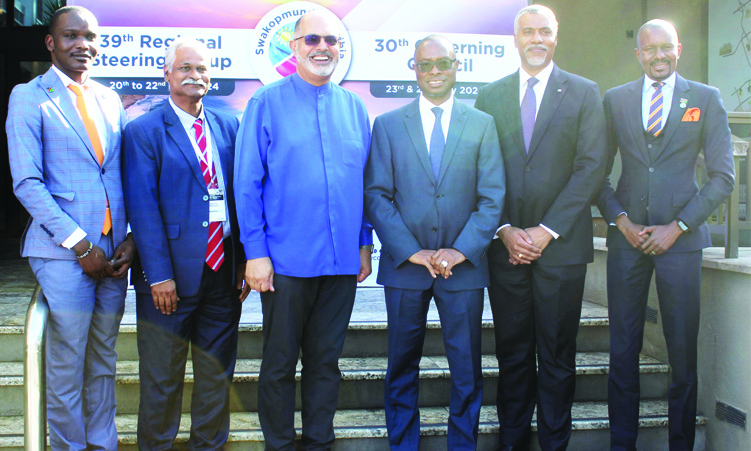Minister of finance and public enterprises Iipumbu Shiimi has called for the harmonisation of trade among African countries.
This to ensure the success of the African Continental Free Trade Area (AfCFTA) agreement.
He was speaking at the 30th East and Southern Africa Governing Council meeting of the World Customs Organisation (WCO) at Swakopmund yesterday.
The minister said without collaborative efforts, the AfCFTA agreement could end up being a “white elephant”.
“AfCFTA is a very important milestone for us on the continent,” he said.
“When the free trade area came into effect, there was celebration everywhere. But when are we going see the tangible benefits? We have to put all these building blocks together before we can see them.”
Shiimi stressed the role of customs administrations in enabling these benefits.
The AfCFTA agreement presents significant opportunities for Namibia, offering preferential access to a market of 1,3 billion people across Africa, but to fully harness this potential, it is crucial to address the complexities of tariff reductions and non-tariff barriers, Shiimi stressed.
He called for customs administrations to streamline processes, ensure compliance and foster a conducive trade environment.
Shiimi said trade within Africa remains disappointingly low and urged intensified efforts to enhance trade among African nations.
The minister highlighted the importance of customs administrators in promoting trade on the continent, emphasising effective border management.
Shiimi mentioned Namibia’s collaboration with partners such as the Economic Commission for Africa and United Nations to launch a national strategy and implementation plan for the AfCFTA agreement.
He noted Namibia’s efforts to enhance its systems, including the introduction of 24-hour border operations and the establishment of one-stop border posts at key transit points in collaboration with Botswana.
Shiimi also emphasised the importance of capacity building, regional partnerships, and compliance enforcement to foster sustainable development and combat transnational crimes such as narcotics trafficking and money laundering.
WCO chairperson Edward Kieswetter told The Namibian that customs play a dual role in facilitating trade and safeguarding societies against illicit trade flows.
“The ultimate intention of the standards and policies that we set and the harmonisation within customs is to serve society. It ensures trade across our borders is well facilitated. Trade increasingly has become high risk,” he said.
He also addressed the importance of collaboration between the customs authorities of different nations.
“The intent of the AfCFTA agreement is to ensure that the movement of goods and services produced in Africa flows for the benefit of all Africans. Customs administrations must be the guardians of that risk,” Kieswetter said.
He acknowledged Namibia’s potential for innovation due to its relatively young customs authority.
He further praised the collaborative efforts between Namibia and South Africa, noting the synergy created by pairing Namibia’s youthful energy with South Africa’s experience.
One of the primary topics discussed was the evolving challenges in customs and trade.
“We face challenges such as changes in the customs and trade environment and how customs administrations can keep pace with these changes to facilitate international trade and maintain supply chain security,” WCO secretary general Ian Saunders said.
He said the success of the AfCFTA agreement depends heavily on efficient customs procedures.
Stay informed with The Namibian – your source for credible journalism. Get in-depth reporting and opinions for
only N$85 a month. Invest in journalism, invest in democracy –
Subscribe Now!










